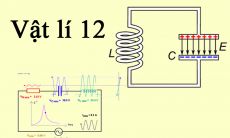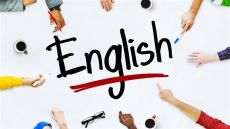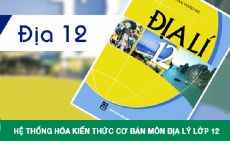Đề kiểm tra HK1 môn Tiếng Anh 10 năm 2020
Trường THPT Hoa Lư
-
Mark the letter A, B, C, or D on your answer sheet to indicate the word whose underlined part differs from the other three in pronunciation in each of the following questions.
Câu 1:
Mark the letter A, B, C, or D on your answer sheet to indicate the word whose underlined part differs from the other three in pronunciation: picture, adventure, future, mature.
A. picture
B. adventure
C. future
D. mature
-
Câu 2:
Mark the letter A, B, C, or D on your answer sheet to indicate the word whose underlined part differs from the other three in pronunciation: urgent, surface, hurry, curtain
A. urgent
B. surface
C. hurry
D. curtain
-
Mark the letter A, B, C, or D on your answer sheet to indicate the correct answer to each of the following questions
Câu 3:
If you work hard, you will eventually ______.
A. succeed
B. successfully
C. successful
D. success
-
Câu 4:
But her real joy was "easing human suffering". The founding of the Radium Institute in 1914 made her humanitarian wish ______ true.
A. came
B. come
C. to come
D. comes
-
Câu 5:
They had eaten everything ______ I arrived at the party.
A. by the time
B. at the time
C. whenever
D. the time
-
Câu 6:
The lift is out of order, _____ is too bad.
A. whom
B. where
C. who
D. which
-
Câu 7:
Do you mind ______ the cooking?
A. to do
B. for doing
C. doing
D. do
-
Câu 8:
The ______ are those who can’t use a part of the body in a normal way.
A. unemployed
B. mentally-retarded
C. disabled
D. injured
-
Câu 9:
His pronunciation causes me many ______.
A. difficult
B. difficultly
C. difficulties
D. difficulty
-
Mark the letter A, B, C, or D on your answer sheet to indicate the most suitable response to complete each of the following exchanges.
Câu 10:
Lan: “Good afternoon!”
Nam: “..........”
A. Goodbye. See you later.
B. Hello. How are you?
C. Nice to meet you?
D. Bye!
-
Câu 11:
Jane: “..........”
Kate: "Everybody, except for my sister because she was on business."
A. Why did your sister attend the party?
B. How was the party?
C. How about the party?
D. Who attended your birthday party?
-
Mark the letter A, B, C, or D on your answer sheet to indicate the word(s) CLOSEST in meaning to the underlined word(s) in each of the following questions
Câu 12:
Mark the letter A, B, C, or D on your answer sheet to indicate the word(s) CLOSEST in meaning to the underlined word(s): I often talk to my fellow peasants when we have free time.
A. farmers
B. doctors
C. lawyers
D. teachers
-
Câu 13:
Mark the letter A, B, C, or D on your answer sheet to indicate the word(s) CLOSEST in meaning to the underlined word(s): After lunch, I often take a short rest.
A. destination
B. plough
C. excursion
D. break
-
Câu 14:
Mark the letter A, B, C, or D on your answer sheet to indicate the word(s) CLOSEST in meaning to the underlined word(s): Linh always has a very busy timetable for the whole week.
A. schedule
B. routine
C. holiday
D. life
-
Câu 15:
Mark the letter A, B, C, or D on your answer sheet to indicate the word(s) CLOSEST in meaning to the underlined word(s): No matter what may happen, you should never give up hopes.
A. create
B. be satisfied with
C. begin
D. stop
-
Read the following passage and mark the letter A, B, C, or D on your answer sheet to indicate the correct word or phrase that best fits each of the numbered blanks
EDUCATION IN ENGLAND
Every child in Great Britain between the age of five and fifteen must (16) ........... school. There (17) ............ three main types of education institutions: primary (elementary) schools, secondary schools, and universities.
State schools are free, and attendance is compulsory. Morning school begins at nine o’clock and lasts until half past four. School is open five days a week.
(18) ............ Saturdays and Sundays, there are no lessons. There are holidays at Christmas, Easter and in summer. In London as in all cities, there are two grades of state schools for those (19) ............... will go to work at fifteen: primary schools for boys and girls between the ages of five and eleven, and secondary schools for children from eleven to fifteen.
The lessons are reading, writing, the English language, English literature, English history, geography, (20) ................,nature study, drawing, painting, singing, woodwork and drill.
Câu 16:
(16) .............
A. go
B. come
C. attend
D. arrive
-
Câu 17:
(17) .................
A. is
B. has
C. have
D. are
-
Câu 18:
(18) .............
A. For
B. On
C. At
D. In
-
Câu 19:
(19) .............
A. when
B. where
C. which
D. who
-
Câu 20:
(20) .............
A. scientifically
B. scientific
C. science
D. scientist
-
Read the following passage and mark the letter A, B, C, or D on your answer sheet to indicate the correct answer to each of the questions
The first school for blind, deaf and mute children in the Tibet Autonomous Region celebrated its first anniversary on Friday. The school is built in the eastern suburb of Lhasa, capital of Tibet, and is designed to hold 200 students. It covers 20,000 square meters.The school curriculum includes Braille and sign language training, Tibetan, mathematics, writing, ethics training, physical education, arts, handicrafts, speech and walking courses. At the celebration, the audience was touched by a silent song expressed by the students with sign language. BaibaToinzhub, a 10-year-old blind child, can speak fluent Chinese and is good at singing and dancing. He told the visitors that life in the boarding school was comfortable.
Câu 21:
What type of students attend the school?
A. Children who cannot see, hear, or speak.
B. Children who live in the Tibet Autonomous Region.
C. Children with a variety of disabilities.
D. Children who are visually impaired.
-
Câu 22:
The school is located in ______.
A. the capital of Tibet
B. the eastern of Tibet
C. 20,000 square meters
D. the suburb of the capital of Tibet
-
Câu 23:
The school is ______.
A. built in Tibet
B. able to hold 200 students
C. 20,000 square kilometers in area
D. the first boarding school in Tibet
-
Câu 24:
Which subject is taught in the school?
A. Computers
B. Physics
C. Foreign languages
D. Braille
-
Câu 25:
Which of the following is NOT true?
A. Life in the boarding school is comfortable.
B. Tibet’s first deaf-mute school celebrated its 10th birthday.
C. BaibaToinzhub can sing and dance very well.
D. The visitors were touched by a silent song.
-
Mark the letter A, B, C, or D on your answer sheet to indicate the sentence that is closest in meaning to each of the following questions
Câu 26:
We hope to receive a message from our mutual friend, Susan.
A. Our mutual friend, Susan, whom we hope to receive a message.
B. Susan, who’s our mutual friend, is hoped to receive a message from.
C. We’re looking forward to receiving a message from our mutual friend, Susan.
D. We wish we received a message from our mutual friend, Susan.
-
Câu 27:
Minh wishes he had taken part in the English competition last week.
A. Minh now regrets not having attended the English competition last week.
B. Minh would never mind not attending the English competition last week.
C. Minh really enjoyed attending the English competition last week.
D. Not attending the English competition last week was Minh’s big mistake.
-
Câu 28:
We really do not want to hear your explanation again.
A. We are fed up with hearing your explanation again.
B. We would rather not ask you to give any explanation again.
C. Your explanation really makes us feel sorry.
D. We are extremely sorry for hearing your explanation again.
-
Câu 29:
I didn’t use to like football.
A. When I was young, I liked football, but now I don’t.
B. I don’t like football.
C. Once I didn’t like football, but now I do.
D. I wasn’t accustomed to football.
-
Câu 30:
The dictionary was so expensive that I didn’t buy it.
A. The dictionary was too expensive for me to buy it.
B. It was an expensive dictionary so that meant I didn’t buy it.
C. It was such an expensive dictionary that I didn’t buy it.
D. The dictionary was enough expensive for me to buy.











